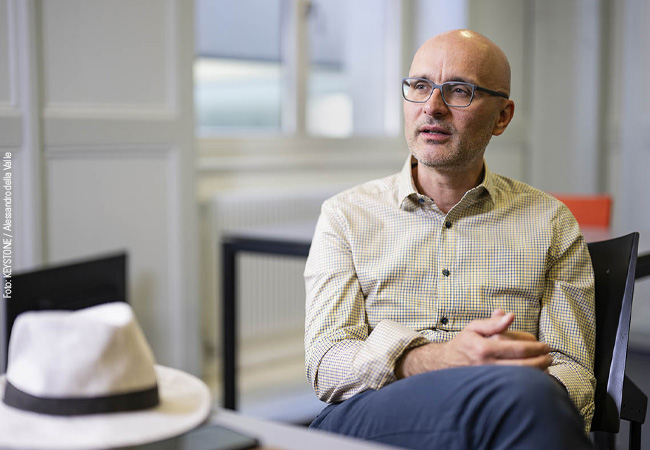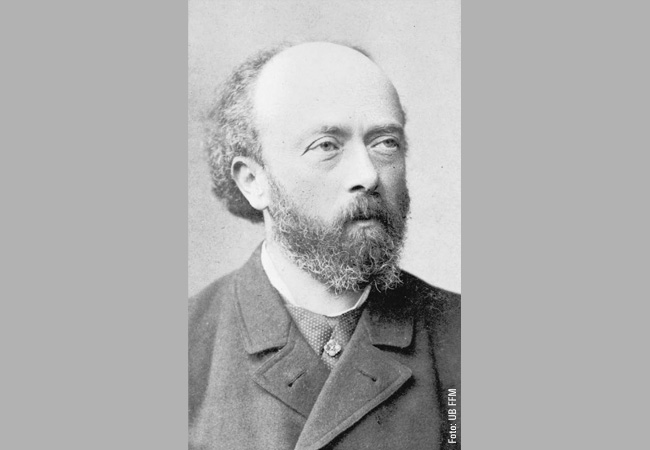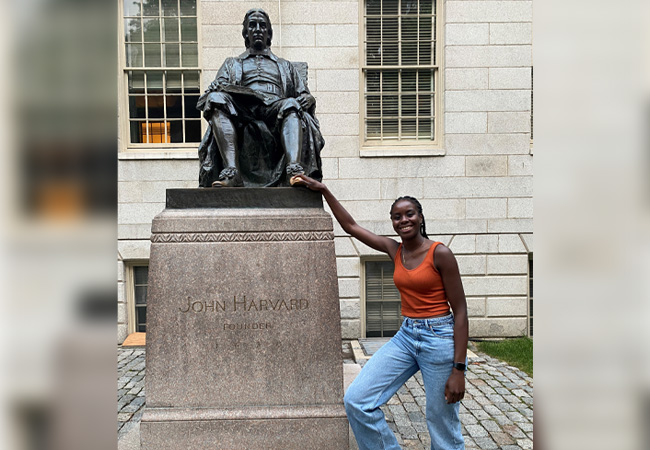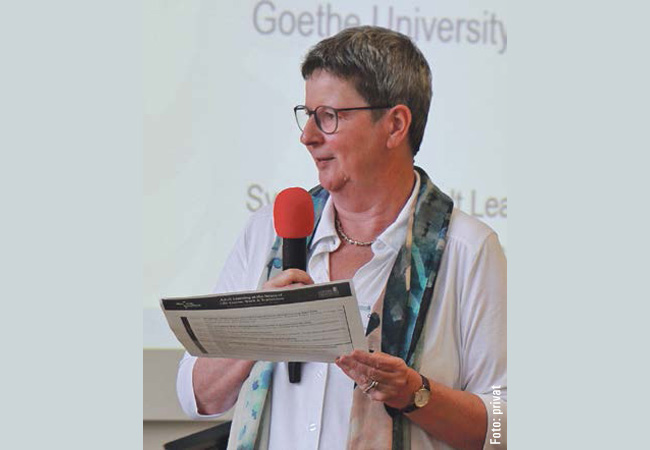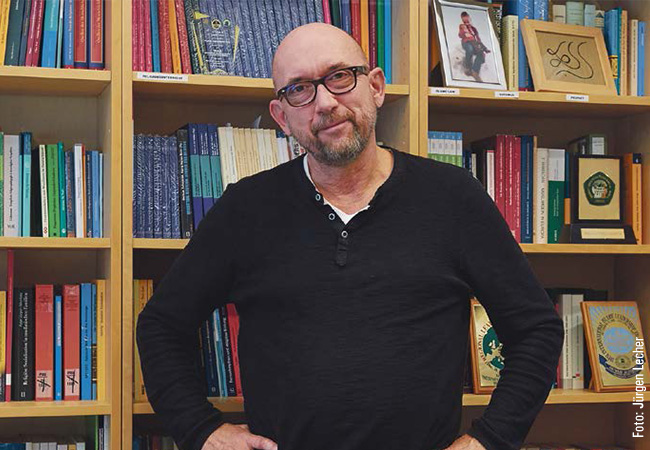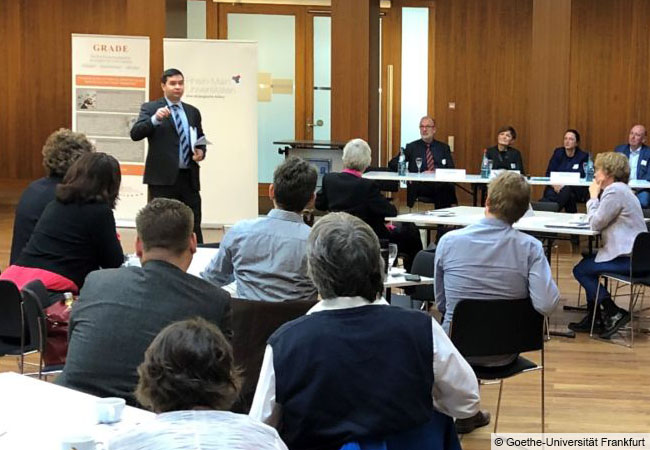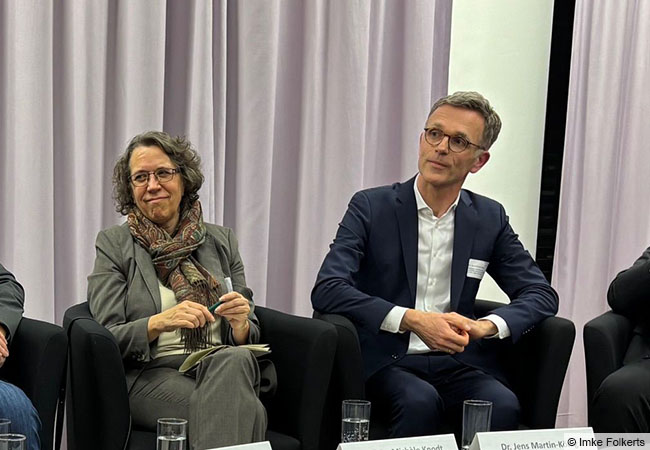Prof. Ingrid Fleming, Director of Goethe University Frankfurt’s “Institute for Vascular Signalling” and a member of the Cardio-Pulmonary Institute’s (CPI) faculty, is researching the way the cardiovascular system functions and how medicines can affect it.
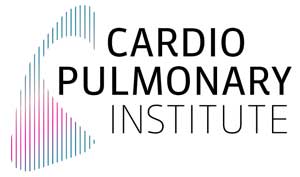
“I’ve only ever pursued directions that I found interesting. That’s how I ended up here,” is how she explains her scientific career. Prof. Fleming is working on a number of different projects in her research laboratory, ranging from the effects of novel lipid mediators on the heart, to the growth of new lymph vessels, all the way to metabolic diseases. She also researches how modifications to proteins change their function, what role matrix-associated proteins play in the regeneration of blood vessels, and identifies vascular microproteins.
Diabetes: a common disease
With the support of the Cardio-Pulmonary Institute, Prof. Fleming’s working group in recent years set up a Metabolomics Core Unit that enables them to measure and study a large number of biological samples of different waste products from metabolic processes, be they from blood, urine or tissue. Her special interest is diabetes and the question of how this widespread disease is connected to the accelerated development of cardiovascular diseases. Diabetes patients are up to three times more likely to develop cardiovascular diseases, prime among them heart attacks, strokes or arterial occlusive disease. Alzheimer’s – which is also known as type 3 diabetes – also constitutes part of the research. One feature of these diseases appears to be a disruption to the microcirculation in the small vessels that determine the blood pressure and availability of oxygen and nutrients to the tissue. The researchers have identified an enzyme that plays a key role in this process and can prevent diabetic retinopathy in a mouse model. In summarizing the project, Prof. Fleming says, “Our discovery and subsequent development of novel inhibitors of this enzyme raise the hope that diabetic retinopathy, one of the main causes of blindness in the population, can hopefully be treated one day.”
Prof. Fleming’s latest publication in the respected scientific journal “Nature” was overseen by Prof. Braun’s group at the Max Planck Institute for Heart and Lung Research in Bad Nauheim. The latter have been interested for a long time in finding mechanisms that will facilitate the heart’s repair, focusing on those that enable the multiplication of cardiac muscle cells to compensate for the loss of cells after a heart attack. An ambitious goal and somewhat of a Holy Grail in cardiovascular research. The reason why mature cardiac muscle cells cannot multiply any more partly has to do with a change in their metabolism, since cardiac muscle cells are more dependent on the fatty acid oxidation of lactate than on glucose. The researchers found that switching off the fatty acid oxidation in mature cardiac muscle cells stimulates the cells’ multiplication and thus promotes the heart’s regeneration following a heart attack. At the molecular level, switching off the metabolism leads to the accumulation of a certain metabolite, which regulates enzyme activity. In this case, it is a demethylase that alters the expression of genes regulating cardiac maturation. So, when the fatty acid metabolism was inhibited, the mature cardiac muscle cells reverted to a less mature phenotype and were able to multiply. This research is a great example of the work done by CPI’s collaborative network and of how important the exchange of expertise and shared use of infrastructure are.
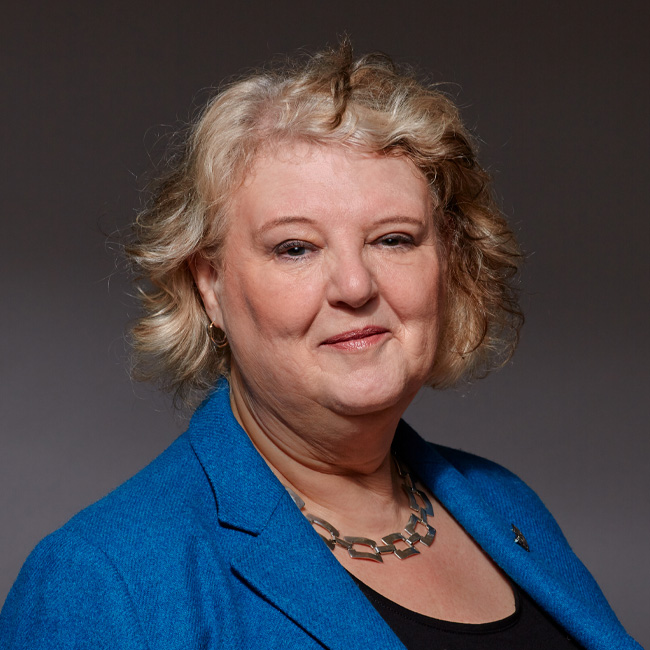
Photo: Klaus Wäldele
Advisory professorship at Huazhong University of Science and Technology
Prof. Ingrid Fleming has been an advisory professor at Huazhong University of Science and Technology in Wuhan (China) since 2023. This cooperation has a long history and started with the head of cardiology at Tongji Medical College, part of Huazhong University of Science and Technology, working on the same lipid signaling path as Prof. Fleming’s laboratory. “We’re in the process of establishing a Sino-German laboratory for cardio-pulmonary studies and are working with Goethe University to enable student exchanges between the two universities,” Prof. Fleming says.
The Cardio-Pulmonary Institute
Diseases of the heart and lungs are among the most common causes of death worldwide. The Cardio-Pulmonary Institute (CPI) brings together researchers and experts who focus on basic, clinical and translational research, and who, together, strive to better understand cardiac and pulmonary diseases and find new types of treatment. The consortium consisting of the universities of Frankfurt and Giessen as well as the Max Planck Institute for Heart and Lung Research, is funded as part of the German Research Foundation’s excellence strategy.
More information is available here.
Promoting young researchers
Prof. Fleming also played a leading role in the establishment of the CPI PhD program and the CPI Academy, i.e. the support program for upcoming scientists. “We founded the CPI Academy with the aim of offering continuous and advanced support to young scientists focused on the heart and lungs,” Prof. Fleming explains. The idea is to provide workshops, training courses and mentoring tailored to the specific needs of CPI Academy members. There are already some success stories: several former CPI Academy members have meanwhile founded their own research groups and have professorships. The CPI Academy has proved to be an excellent and extremely valuable training ground and an effective network for cooperation. “My advice is to make the best of the opportunity and to be proactive. When I started my career, opportunities like this didn’t exist, and I think I would have greatly benefited from one,” Prof. Fleming says.
In the future, Prof. Fleming wants to continue to let her research interests guide her. “I don’t have a crystal ball, but what I’m really interested in at the moment is investigating the causes of microcirculatory changes in the retina, the heart and the brain, and how diabetes accelerates their development,” she says. Fortunately, CPI has experts with a lot of experience in working on neurovascular interactions and important research infrastructure for single-cell sequencing, proteomics, etc., which turn out to be extremely valuable for attaining this goal. Another important future area of research is sex-related differences in medicine and research, Prof. Fleming says. “We have to concentrate more on how cardiopulmonary diseases differ in females and males. The next few years will likely see an explosion in personalized screening and disease analyses, meaning that treatment options will become flexible and will have to depart from the current approach based on a white, male population,” the professor explains. And finally, she also has some advice for young researchers: “Don’t be scared of technology or data-based research, because both of them are absolutely essential for future cardiopulmonary research.”
Katharina Schulenburg
ExStra – The Excellence Strategy of the German Federal and State Governments‚
Goethe University Frankfurt is applying for the upcoming round of the Excellence Strategy of the German federal and state governments with four new clusters on the following research topics: Trust in conflict (ConTrust), infection and inflammation (EMTHERA), the origin of heavy chemical elements (ELEMENTS), and cellular architectures (SCALE). These applications bring together the competencies and pioneering ideas of Goethe University Frankfurt with those of colleagues in the Rhine-Main Universities (RMU) alliance and additional partners from four major non-university research organizations. The Cluster of Excellence “Cardio-Pulmonary Institute” (CPI), first set up in 2019, will submit a full proposal next year.


